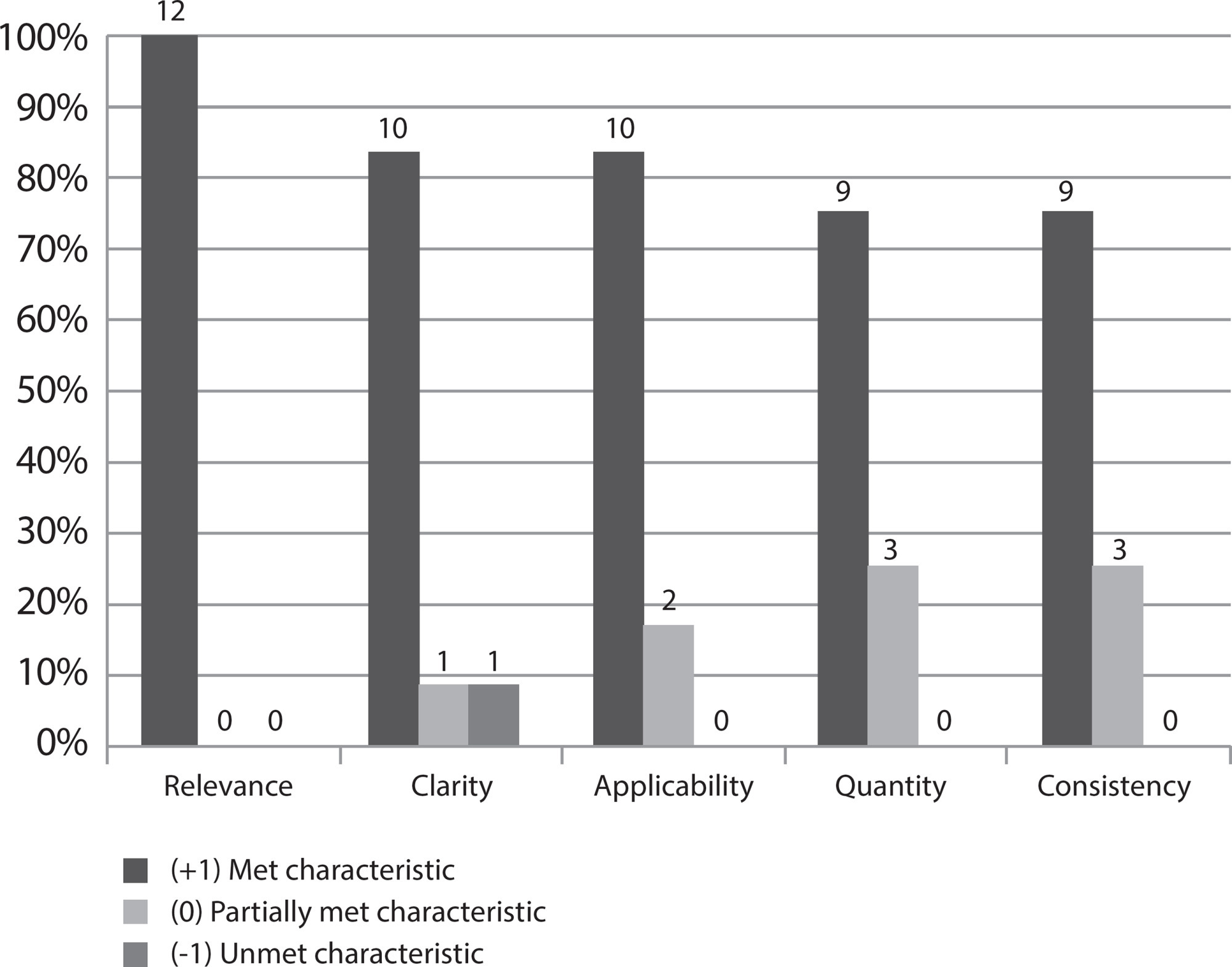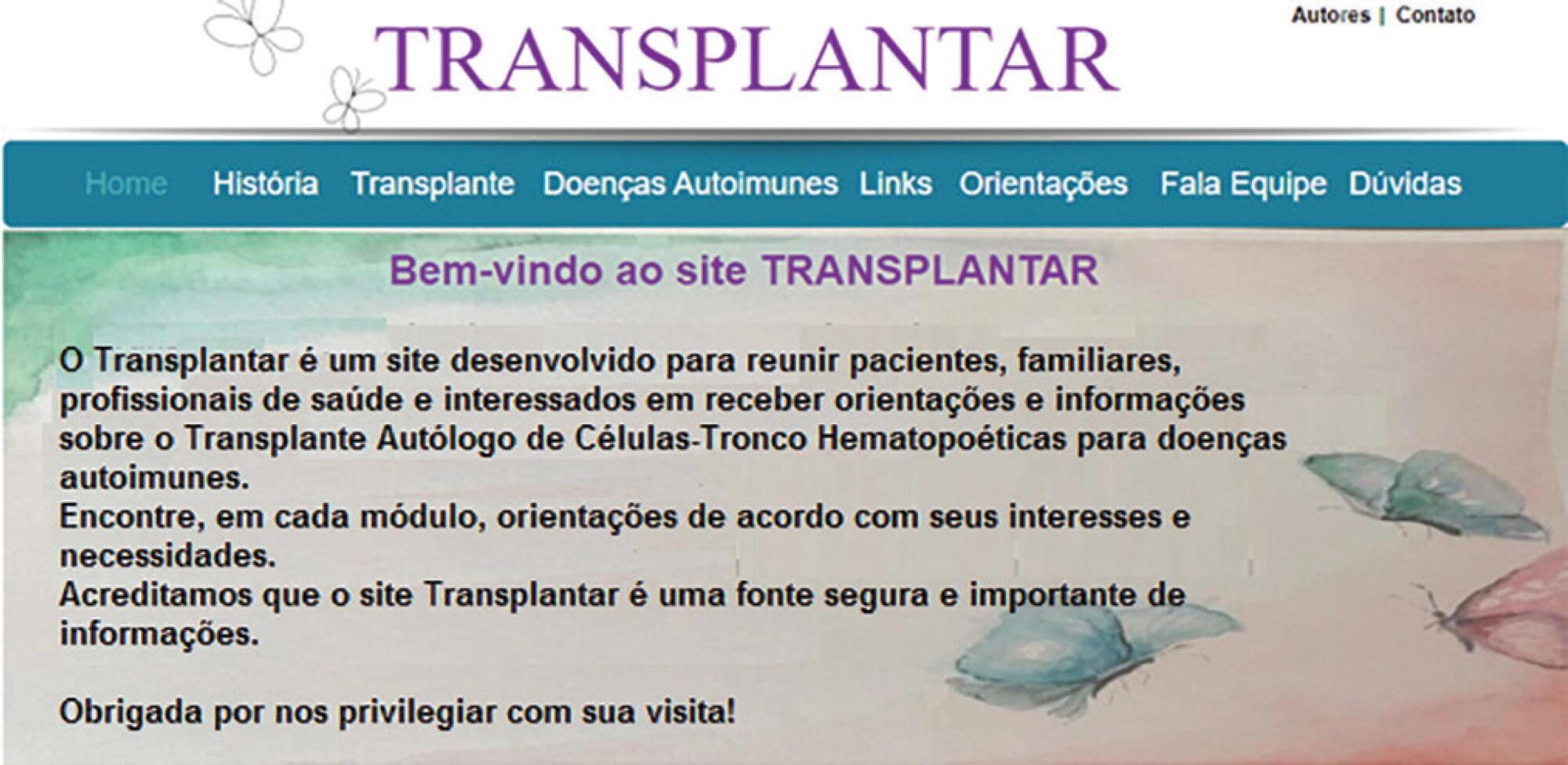-
ORIGINAL ARTICLE
Digital educational technology for care management of diabetes mellitus people’s feet
Revista Brasileira de Enfermagem. 2021;74(suppl 5):e20190725
03-29-2021
Resumo
ORIGINAL ARTICLEDigital educational technology for care management of diabetes mellitus people’s feet
Revista Brasileira de Enfermagem. 2021;74(suppl 5):e20190725
03-29-2021DOI 10.1590/0034-7167-2019-0725
Visualizações0Ver maisABSTRACT
Objective:
to develop and validate a distance learning course aimed at the pillars of care management of diabetes mellitus people’s feet.
Method:
a technological production research using Moodle Virtual Learning Environment, based on Andragogy, Constructionism and Instructional Design. Content is based on consensus guidelines on diabetic foot. Validation was carried out by distance education, diabetes and/or diabetic foot experts.
Results:
the course’s content is based on diabetic foot guidelines, and is structured in units with didactic material, videos, forums and questionnaires to assess the participants’ learning. The judges considered it appropriate to meet nurses’ needs in clinical practice.
Conclusion:
the virtual learning course has been validated, being a promising strategy for training nurses on care management of diabetes mellitus people’s feet.

-
EXPERIENCE REPORT
Pedagogical mediations for non-formal nursing teaching during the COVID-19 pandemic
Revista Brasileira de Enfermagem. 2020;73(Suppl 2):e20200499
11-13-2020
Resumo
EXPERIENCE REPORTPedagogical mediations for non-formal nursing teaching during the COVID-19 pandemic
Revista Brasileira de Enfermagem. 2020;73(Suppl 2):e20200499
11-13-2020DOI 10.1590/0034-7167-2020-0499
Visualizações0Ver maisABSTRACT
Objective:
to report the experience of developing pedagogical mediations in a Virtual Learning Environment implemented in a nursing faculty during the COVID-19 pandemic.
Methods:
an experience report on the construction of a distance course aimed at graduates and residents of a nursing faculty at a public university located in the city of Rio de Janeiro.
Results:
the course's conception, operationalization and implementation were the result of a collective work that culminated in a non-formal, virtual and problematic teaching process, which reached a participation rate of 82% of enrolled students.
Final considerations:
even in times of social isolation, the course promoted collaborative learning of knowledge about COVID-19 and strengthened the relationship between professors and students. The possibility of carrying out distance activities based on solid methodological proposals that contradict the content logic often observed in distance learning is emphasized.

-
ORIGINAL ARTICLE
No to distance education! Production of meaning of discourses of nursing representative entities
Revista Brasileira de Enfermagem. 2020;73(5):e20190465
07-08-2020
Resumo
ORIGINAL ARTICLENo to distance education! Production of meaning of discourses of nursing representative entities
Revista Brasileira de Enfermagem. 2020;73(5):e20190465
07-08-2020DOI 10.1590/0034-7167-2019-0465
Visualizações0ABSTRACT
Objectives:
to analyze the processes of production of meanings, based on the positions of Brazilian nursing representative entities, on distance education, considering the implications for nursing as a discipline, profession and work.
Methods:
this documentary research was carried out in sources from the Federal Nursing Council and Associação Brasileira de Enfermagem, from 2015 to 2018. Data were examined from discourse analysis, using paraphrase and polysemy as analytical devices.
Results:
they were organized based on the effects of meanings produced and affiliated to two analytical categories: “Forms of mobilization and operating entities” and “Basis and justifications for the positions”.
Final Considerations:
the discourses signal concern about the future training of new professionals. Resistance, participation, visibility, broad and emphatic debate on the topic are shown as strategies for coping and defending a training process less captured by neoliberal logic, and more relational and committed to the quality of health care.
Palavras-chave: Education, DistanceEducation, HigherEducation, NursingNursingNursing Education ResearchVer mais
-
ORIGINAL ARTICLE
Virtual learning object in hematopoietic stem cell transplantation for autoimmune diseases
Revista Brasileira de Enfermagem. 2019;72(4):994-1000
08-19-2019
Resumo
ORIGINAL ARTICLEVirtual learning object in hematopoietic stem cell transplantation for autoimmune diseases
Revista Brasileira de Enfermagem. 2019;72(4):994-1000
08-19-2019DOI 10.1590/0034-7167-2018-0669
Visualizações0ABSTRACT
Objective:
describe the development of a virtual learning object to provide information about autologous transplantation of hematopoietic stem cells to autoimmune diseases.
Methods:
methodological study of a website development, using the instructional design model that includes Analysis, Design, Development and Implementation.
Results:
the virtual object, available at , was developed in a web platform, in the Hypertext Markup Language, using the software WebAcappella - Responsive Website Creator (Intuisphere, France 2016). The content was structured in the modules: History, Transplant, Autoimmune Diseases, Links, Guidelines, Speech Team and Doubts. The icons and menus were created in order to attract the user, facilitating the search for information and allowing maximum use of the resources available on the website.
Conclusion:
the methodology used allowed the development of the virtual learning object, which can be used as a tool to guide and disseminate knowledge about this treatment.
Palavras-chave: Autoimmune DiseasesEducation, DistanceHematopoietic Stem Cell TransplantationInternetTeaching MaterialsVer mais
-
RESEARCH
Construction of assistive technology as online course for the blind about hypertension
Revista Brasileira de Enfermagem. 2018;71(4):1970-1976
01-01-2018
Resumo
RESEARCHConstruction of assistive technology as online course for the blind about hypertension
Revista Brasileira de Enfermagem. 2018;71(4):1970-1976
01-01-2018DOI 10.1590/0034-7167-2017-0056
Visualizações0Ver maisABSTRACT
Objective:
to develop affordable education course for the blind on the prevention of hypertension.
Method:
we used the Model of Development of Digital Educational Materials composed by the stages of analysis and planning; modeling; implementation; evaluation and maintenance; distribution.
Results:
we obtained fifteen pages divided into six learning units. The study followed the accessibility standards of national and international documents. Evaluation and maintenance phase occurred during preparation of the course.
Final considerations:
to elaborate a course as assistive technology for the visually-impaired is a feasible task, provides knowledge about hypertension prevention and equality of access to digital educational materials.
-
RESEARCH
Teaching-learning evaluation on the ICNP® using virtual learning environment
Revista Brasileira de Enfermagem. 2017;70(3):602-609
01-01-2017
Resumo
RESEARCHTeaching-learning evaluation on the ICNP® using virtual learning environment
Revista Brasileira de Enfermagem. 2017;70(3):602-609
01-01-2017DOI 10.1590/0034-7167-2016-0545
Visualizações0ABSTRACT
Objective:
Evaluating the teaching-learning process of undergraduates and nursing professionals on the International Classification for Nursing Practice (ICNP®) through a course on Moodle Platform.
Method:
Mixed research conducted with 51 nursing students and nurses. Many technological and educational resources were used. To collect data, two semi-structured questionnaires were applied and focus groups were carried out. Statistical and thematic analysis of the data was performed.
Results:
There was a correlation between the Wiki variable, the Animation Video (p = 0.002) and the Arch Method (p = 0.04), as well as a correlation between the Forum, the Virtual Book (P < 0.001) and time (p = 0.009). Three topics emerged: innovation in the application of technological resources, distance education in the professional education and permanent education and the teaching-learning process on the ICNP® in a collaborative way.
Conclusion:
Teaching-learning strategies and technological resources used were pointed out as innovative and helped students have a better performance.
Palavras-chave: Education, ContinuingEducation, DistanceEducation, NursingEducational TechnologyNursing CareVer mais -
EXPERIENCE REPORT
Online training for health professionals in three regions of Brazil
Revista Brasileira de Enfermagem. 2016;69(5):981-985
01-01-2016
Resumo
EXPERIENCE REPORTOnline training for health professionals in three regions of Brazil
Revista Brasileira de Enfermagem. 2016;69(5):981-985
01-01-2016DOI 10.1590/0034-7167.2016690506
Visualizações0Ver maisABSTRACT
Objective:
to describe online training experience aimed at professionals working in the public health service in 27 Neonatal and Pediatric Intensive Care Units, and to reflect concerning the training process and possible improvements in this process.
Method:
this is an experience report study about the online training with multidisciplinary content, planned from the situational diagnosis of 27 institutions. The training target set was 10 participants per institution and per module, including the following topics: Indicators of Quality as a Management Tool, Hand Hygiene, Patient Safety, Intravenous Therapy and Patients' Chart Record.
Results:
a total of 2,071 active students in the modules, with 1,046 approved. The mean of 76 students per module exceeded the target set.
Conclusion:
experience has shown that online training is comprehensive as a potential tool for the professional technical development and digital inclusion. The online learning system becomes weakened if participants are unaware of the technological resources.



